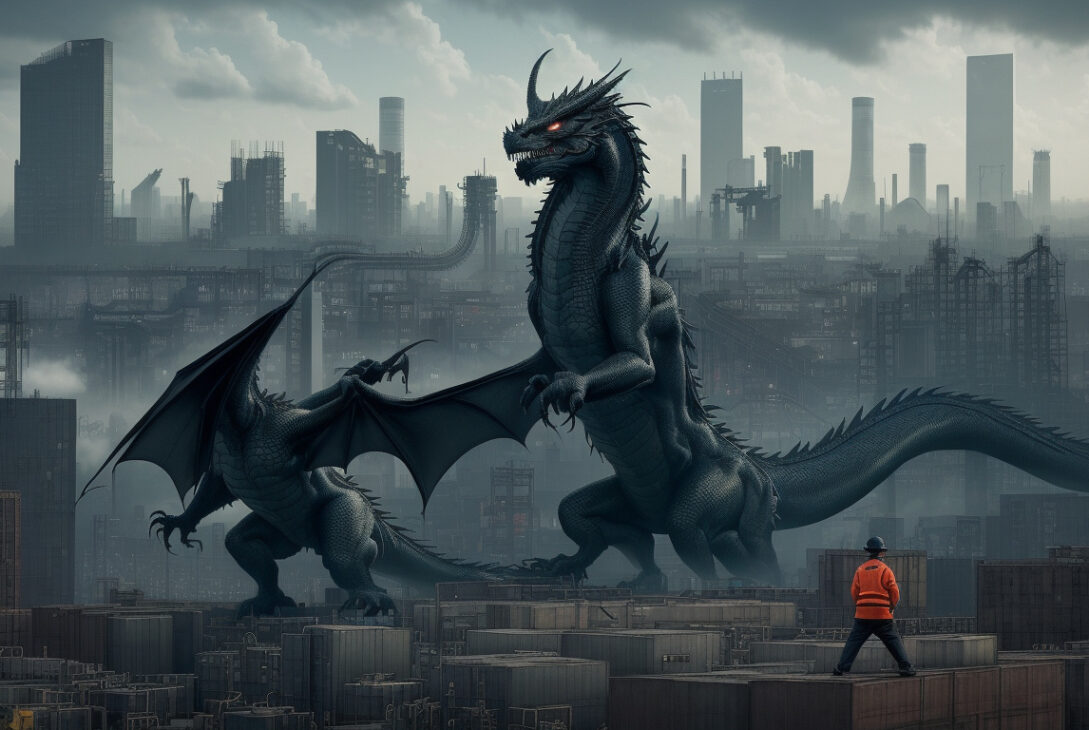Jamie Dimon Highlights US Vulnerability in Tech Arms Race Amid Nvidia-China Chip Dispute
By TOI Tech Desk | Updated: August 15, 2025, 07:43 IST
The escalating tensions between the United States and China over advanced technology supply chains have taken center stage once more, with JPMorgan Chase CEO Jamie Dimon offering a pointed critique of America’s dependence on China for critical goods. This comes amid a high-profile controversy surrounding Nvidia’s sales of its cutting-edge H20 AI chips to China, which Chinese regulators are scrutinizing intensely.
Nvidia’s H20 Chip Sales Under Regulatory Pressure in China
Nvidia, a global leader in graphic processing units and artificial intelligence technology, designed the H20 AI chip specifically for the Chinese market. However, recent developments have complicated its distribution. Chinese authorities have summoned Nvidia representatives to investigate alleged security risks associated with these chips. These claims, which Nvidia denies emphatically, have prompted Beijing to encourage major tech firms such as Alibaba and ByteDance to reconsider and potentially reduce their orders of Nvidia’s H20 AI chips.
Chinese regulators have questioned why domestic companies continue to purchase Nvidia chips—criticized by former US President Donald Trump as “obsolete”—instead of adopting homegrown alternatives. According to reports, Chinese companies have been advised to avoid these AI chips, especially in government-related projects, to secure the nation’s technological independence.
In response, Nvidia’s Chief Security Officer, David Reber, has publicly refuted security allegations. Writing in a company blog post, Reber stated there are “no backdoors, no kill switches, and no spyware” embedded in the H20 chips. He stressed, “There is no such thing as a ‘good’ secret backdoor—only dangerous vulnerabilities that need to be eliminated,” warning that such accusations threaten to erode global trust in US technology.
Jamie Dimon on America’s Strategic Vulnerabilities
Speaking at the Reagan National Economic Forum, Jamie Dimon delivered a stark assessment of the United States’ current strategic position concerning the global technology race against China. Dimon identified America’s dependence on China not only in technology sectors but also in essential medical and material supplies as a critical weakness.
“It’s a little embarrassing that we as a nation allowed 100% of our penicillin to come from China, and all of our rare earth metals, and all of our advanced chipmaking tools,” Dimon said candidly. These components are vital not only for commercial industry but also for national defense and healthcare.
On the subject of the technology arms race, Dimon emphasized the military implications of advanced AI chips such as Nvidia’s H20, which can play a significant role in powering systems including supersonic missile technologies. “You don’t want to give them the chips which will make their supersonic missiles better,” he remarked. Nevertheless, he acknowledged that while the US may not be able to completely stop China’s technological advances, it has the capacity to slow them down through targeted efforts.
“Technology is a big piece of what protects us,” Dimon said. “We need to get our act together.”
Broader Implications for US-China Tech Rivalry
The current dispute over Nvidia’s H20 AI chips highlights the broader, intensifying US-China competition for technological supremacy. For years, the US has maintained export controls aimed at limiting the transfer of strategic technologies to China, but enforcement and policy remain complex amid intertwined global supply chains.
China’s push for self-reliance in technology production—especially in semiconductors and AI hardware—aligns with its broader goals to reduce dependency on foreign suppliers. Meanwhile, the US grapples with safeguarding its technological edge without disrupting its own economic interests in the Chinese market.
This friction over Nvidia’s chips is emblematic of the multifaceted challenges that both nations face, encompassing economic, security, and geopolitical dimensions.
Conclusion
Jamie Dimon’s remarks underscore an urgent call to action for the United States to evaluate and shore up its vulnerabilities in critical goods and advanced technology sectors. The dispute surrounding Nvidia’s H20 AI chips serves as a tangible example of the complexities and high stakes within the ongoing US-China technology arms race.
As both nations navigate this fraught landscape, the delicate balance between cooperation, competition, and national security will remain pivotal to the global technological and economic order.
About the Author:
TOI Tech Desk is a dedicated technology news team of The Times of India, committed to delivering the latest global developments across gadgets, AI, cybersecurity, and digital innovations with accuracy and insight.
For more updates on technology and AI developments, stay tuned to The Times of India.










